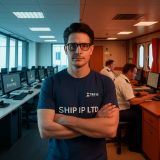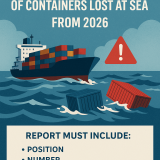Earlier this year, a group of female students at Korea Maritime & Ocean University filed a complaint with the Human Rights Committee against the university for gender discrimination. They alleged they were not given a fair opportunity to participate in the field exercise program for marine technicians.
This work placement program is run by shipping companies partnered with the university. Traditionally, the ratio of female students has always been lower than male students. However, in the past five years, 80 percent of the male applicants received an offer while only 39 percent of female applicants did.
This led to a disparity in the employment rate between the genders. During the same period, the employment rate of male graduates reached over 80 percent but the rate of female graduates recorded just above 61 percent. The rate of female graduates who completed the field exercise program was way above that at 85.2 percent.
The university told the Human Rights Committee during investigation that the inclination to select more male candidates is due to the “vocational characteristics of the shipping industry”. As the shipping industry has long been a male-dominated one, it is claimed the companies running the program do not have sufficient facilities for women, such as toilets or locker rooms on their ships.
On June 13, the Human Rights Committee found that the university’s “sexist customs” are “systematically excluding women in the maritime labor market” and therefore, made the recommendation for the school to be more inclusive via a change of policy. The Committee also recommended that the Ministry of Oceans and Fisheries, which has a seat at the university’ board, to conduct a check on the partnering shipping companies and report on the gender ratio of crew members who have marine technician licenses.
The university accepted the Committee’s finding and said it will work towards a sustainable solution.
Deep-rooted male-dominant culture
Han Chul-hwan, international logistics professor at Dongseo University, pointed out that this case showed the “very anachronistic tradition” in the industry. “It’s appalling that an educational institution that trains aspiring marine technicians keeps an outdated, sexist tradition like that,” he said during an interview with Maritime Fairtrade.
Prof. Han attributed this tradition to Confucianism. He also suggested that the labor-intensive nature of the shipping industry, where perceived male qualities such as strength, toughness and stamina are valued, could have worsen the situation.
“South Korea is a society where the male-centered Confucianist culture is deep-seated,” he said. “The culture has been long established in many industries, and the shipping industry is one of them. So-called ‘macho’ culture still exists throughout the industry, for example, frequent after-work gatherings and drinking sessions led by men. It is not an environment that welcomes women.”
He added: “The shipping business has traditionally been about sailing in the ocean, by fighting against any bad weather conditions. This is why men, who are considered to be stronger than women, have been more preferred. Many of the existing cabins and facilities on ships are built for men. If shipping companies were to hire more women, they need to pay an extra cost to build facilities for them.”
Prof. Han said it will take time to change mindset as the process involved upending long-held tradition and culture.
“I admire the committee’s decisions, but we all need to have a new mindset to solve the gender inequality problem in the industry,” he said. “We hear about gender equality or diversity, but many businesses, even educational institutions, still maintain male-centered traditions.”
He noted that there is now less demand for manual work because of automation and technology advancements and this development is good for leveling the gender discrimination playing field.
“Ports and ships are becoming smarter than before with the help of information technology,” he said. “Traits like being careful and multi-tasking abilities, other than just brute strength, are now prioritized in the field. The shipping companies also should find ways to actively hire more female talents following the changing trends.”
Han added that hiring more female talents will also be a solution to the labor shortage caused by the aging population and low birth rate in South Korea.
Source: https://maritimefairtrade.org/korean-female-maritime-students-file-complaint-against-university-for-gender-discrimination/





